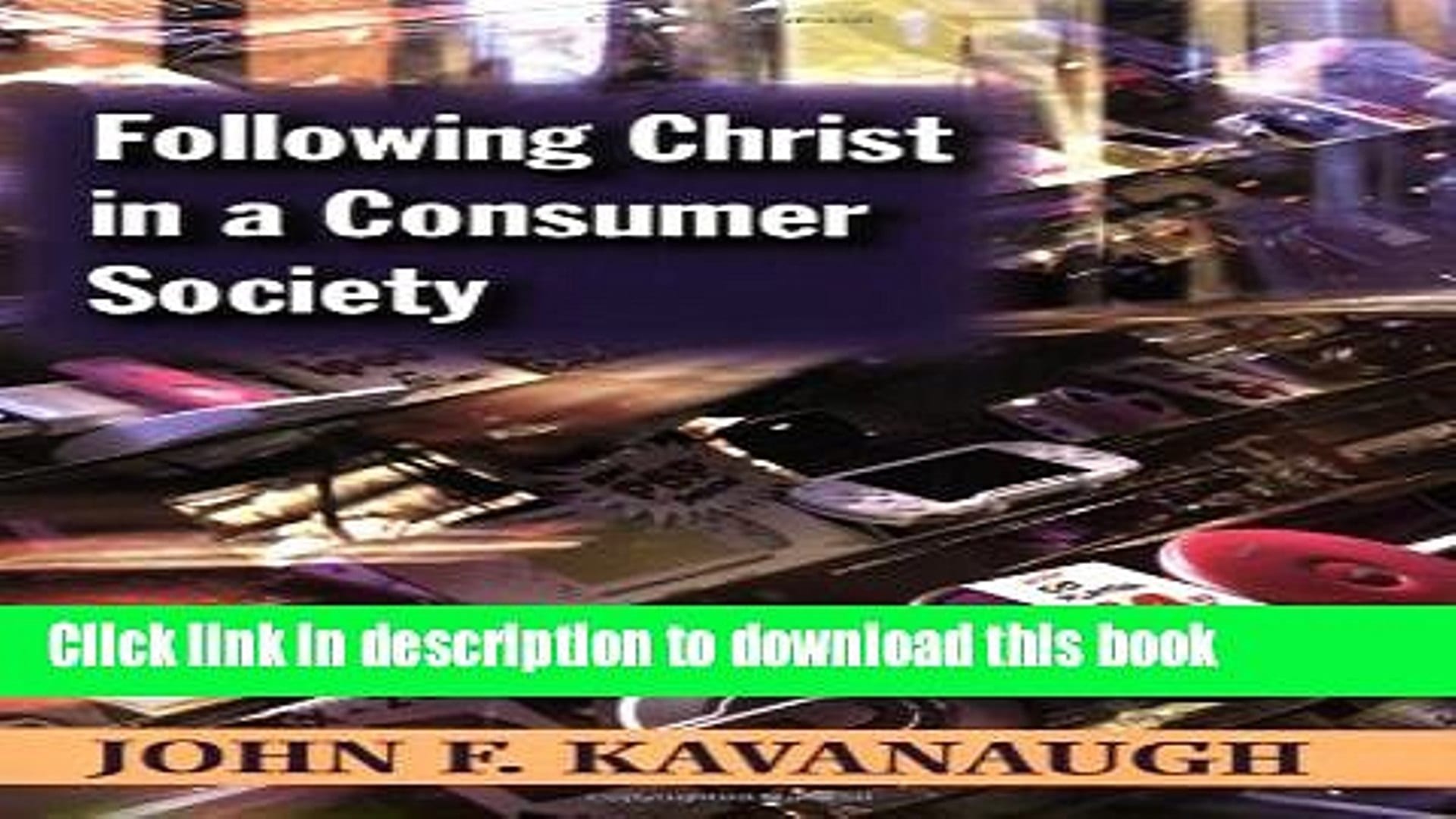Author JOHN FRANCIS KAVANAUGH
Publisher ORBIS BOOKS
ISBN 157075666
It is now over thirty years since this book was written and first published. A twenty- fifth updated edition is still available new and second hand copies of the original edition are available also. It is worth obtaining, although a somewhat tough read, in parts at least. I think it is a healthy and discerning guide to the world in which we live. The author is a Jesuit priest and at the time of writing the book was associate professor of philosophy at St Louis University. He writes powerfully, persuasively and clearly. He begins with a short look at Karl Marx showing how, in certain regards, the concern in his Das Kapital was first that persons were being turned into a commodity by the emerging industrialism and consumerism of the nineteenth century. Kavanaugh then shows how this element of Marx corresponds with the revelation of the Bible and of Jesus in particular. This author is unabashedly Christian and writes with the aim of presenting a well-reasoned spirituality of cultural resistance. He exposes the assumptions of our age; the com-modification of mankind is what concerns him. “Thingism” instead of honoring persons, (and things) in their proper way must become fundamental to our thinking. Here we are presented with a somewhat philosophical approach to towards a Christian doctrine of man as person and the power of culture that inevitably has the power to shape for good or ill. Hostile cultures are rampant and inevitably mould the unwary. Regarded as a perennial best-seller on this most vital of topics there is a depth of insight and richness of spiritual perception in this short book and this strips away the attractive veneers present in our consumer society laying bare the real issues of what it means to be human and Christian. Although the author does not use a surfeit of scripture references his thesis is thoroughly Biblical and not more so than his chapter entitled “Reading the Life of Christ.” Finding Him as truly human, the Person par excellence, in Him the Personal Form is seen rather than the ‘commodity form.’ The understanding that human’s have ‘personal form’ indicates their value, they are irreplaceable and made in God’s image and possess powers of self conscious reflection and are of necessity moral. Community is vital, prayerfulness in fellowship with God are essential to the formation of a Christian identity. Although this book is very much an intellectual assessment, for those serious about understanding the rampant materialism and consumer mentality and having the discernment to resist and challenge it, there is plenty of help to be found in these pages. The book closes with a short section enumerating a number of things that will contribute toward a life that does not run with the pack. Finally the author furnishes us with a Bibliography for further reading concerning the ‘Commodity Form and the Personal.’





